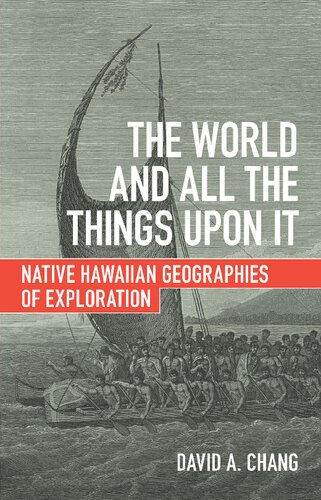

Most ebook files are in PDF format, so you can easily read them using various software such as Foxit Reader or directly on the Google Chrome browser.
Some ebook files are released by publishers in other formats such as .awz, .mobi, .epub, .fb2, etc. You may need to install specific software to read these formats on mobile/PC, such as Calibre.
Please read the tutorial at this link: https://ebookbell.com/faq
We offer FREE conversion to the popular formats you request; however, this may take some time. Therefore, right after payment, please email us, and we will try to provide the service as quickly as possible.
For some exceptional file formats or broken links (if any), please refrain from opening any disputes. Instead, email us first, and we will try to assist within a maximum of 6 hours.
EbookBell Team

0.0
0 reviewsThe World and All the Things upon It addresses these questions by tracing how Kanaka Maoli (Native Hawaiian people) explored the outside world and generated their own understandings of it in the century after James Cook’s arrival in 1778. Writing with verve, David A. Chang draws on the compelling words of long-ignored Hawaiian-language sources—stories, songs, chants, and political prose—to demonstrate how Native Hawaiian people worked to influence their metaphorical “place in the world.” We meet, for example, Ka'iana, a Hawaiian chief who took an English captain as his lover and, while sailing throughout the Pacific, considered how Chinese, Filipinos, Pacific Islanders, and Native Americans might shape relations with Westerners to their own advantage. Chang’s book is unique in examining travel, sexuality, spirituality, print culture, gender, labor, education, and race to shed light on how constructions of global geography became a site through which Hawaiians, as well as their would-be colonizers, perceived and contested imperialism, colonialism, and nationalism.
Rarely have historians asked how non-Western people imagined and even forged their own geographies of their colonizers and the broader world. This book takes up that task. It emphasizes, moreover, that there is no better way to understand the process and meaning of global exploration than by looking out from the shores of a place, such as Hawai'i, that was allegedly the object, and not the agent, of exploration.